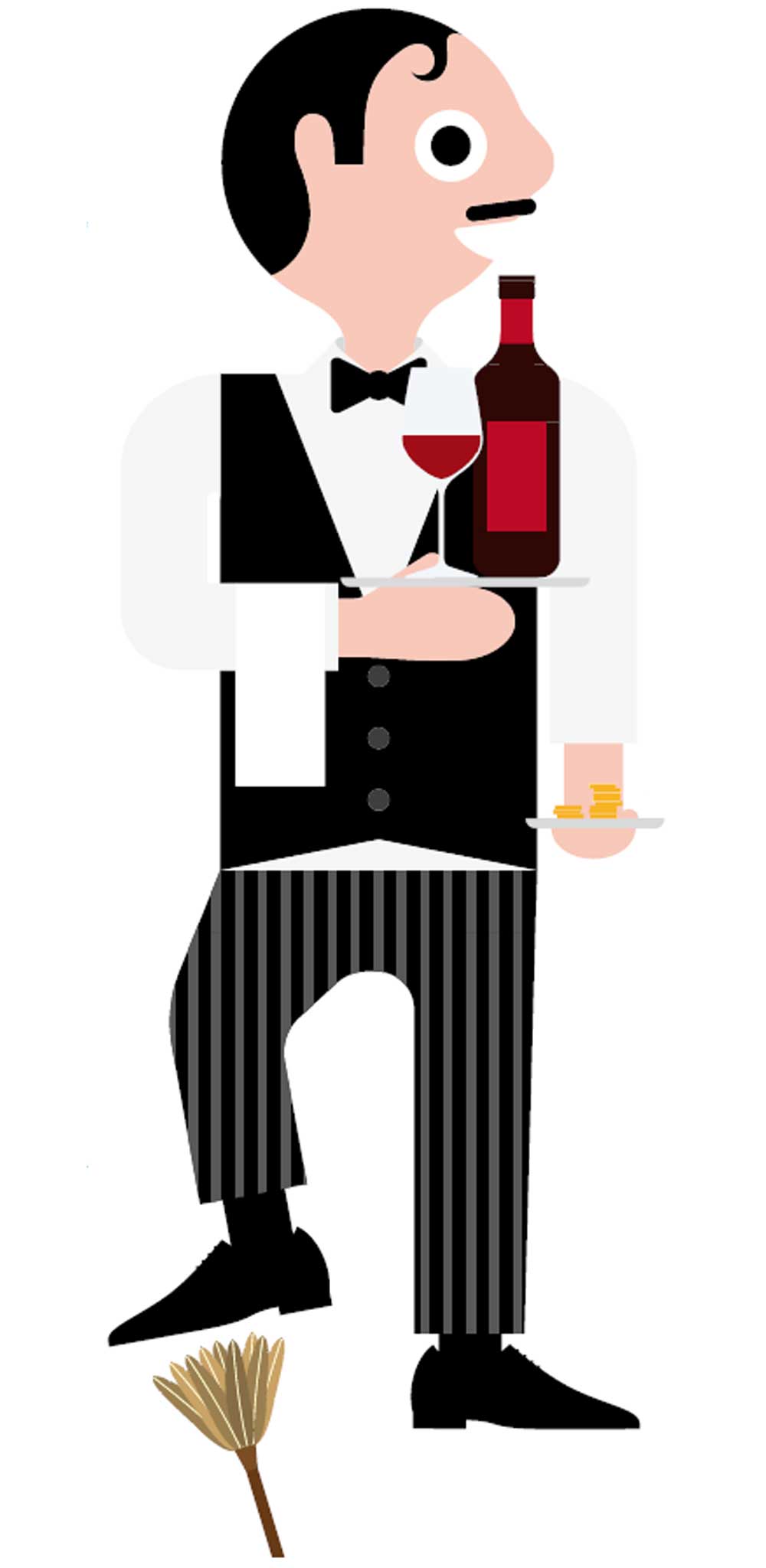Anatomy of a waiter: Service staff spill the secrets of their trade
Next Sunday is the first ever National Waiters' Day. To celebrate, we share tales from the restaurant trenches by those in the front line.

Your support helps us to tell the story
From reproductive rights to climate change to Big Tech, The Independent is on the ground when the story is developing. Whether it's investigating the financials of Elon Musk's pro-Trump PAC or producing our latest documentary, 'The A Word', which shines a light on the American women fighting for reproductive rights, we know how important it is to parse out the facts from the messaging.
At such a critical moment in US history, we need reporters on the ground. Your donation allows us to keep sending journalists to speak to both sides of the story.
The Independent is trusted by Americans across the entire political spectrum. And unlike many other quality news outlets, we choose not to lock Americans out of our reporting and analysis with paywalls. We believe quality journalism should be available to everyone, paid for by those who can afford it.
Your support makes all the difference.The secrets
Want to know what’s really going on behind those munificent smiles? Well, given the strains of service, it’s no surprise that exposés of the waitering game abound.
Choice examples include Hotel Bemelmans by children’s author Ludwig Bemelmans, of Madeleine fame, a thinly veiled account of his time at the Ritz Carlton hotel in 1930s New York, and Waiter Rant: Thanks for the Tip by Steve Dublanica, whose anonymous confessional blog made him a figure of notoriety before he outed himself in 2008.
The lingo
In a profession where discretion is paramount, having your own jargon is especially important. Here are a few commonly recognised terms:
“86”: the number used when a dish has run out and been cut off the menu (eg “The lamb’s 86”). Can also refer to colleagues who have been cut off the rota – or, that is, sacked.
WKF: “Well known face”, the phrase classier establishments use instead of the more nakedly starstruck “VIP”.
“I’m in the weeds”: “I’m overwhelmed”, to be screamed to feckless colleagues out of earshot of customers.
“Campers”: diners who make table-turning plans go awry by “camping out” for excessive amounts of time.
Tipping
Shrewd waiters know that service with a smile influences tipping behaviour. A study by the University of Mississippi showed that light arm-touching by waitresses earnt them 36 per cent more in tips.
Calling customers by their name results in a 10 per cent gratuity gain, while drawing a smiley face on the bill can apparently net a 17 per cent windfall.
But beware of telling your waiter white lies: one study has shown that telling a server that a meal was delicious, when it wasn’t, will paradoxically end up with you paying a higher tip, as a result of that lie.
The legwork
Working tables is a physically demanding job: a garçon weighing 77 kilos will burn through 309 calories during an hour’s work, when walking at an average pace.
Some workers claim to walk up to five miles per four-hour shift, so it’s not surprising that some personal trainers have adopted the so-called “waiter’s walk” as part of their exercise regime: a kettlebell weight, rather than a tray, is raised high above the head, wrist facing forward as you walk.
The itchy feet
Stars such as Helen Mirren, Kelly Brook and Graham Norton all plotted their big break while waiting tables. But not all celebrities were born to serve. Jennifer Aniston, who worked as a waitress in a New York burger bar before finding fame, admitted that she was a terrible server.
“I dropped more than one Alpine burger in customers’ laps,” said the actress, who then went on to play inept waitress Rachel Green in the US sitcom Friends. Within the service industry itself, an ambitious young Raymond Blanc – the two-Michelin-starred chef and restaurateur – briefly started out as a waiter at an Oxfordshire eatery in 1972 before taking over culinary duties when the head chef fell ill.
Join our commenting forum
Join thought-provoking conversations, follow other Independent readers and see their replies
Comments